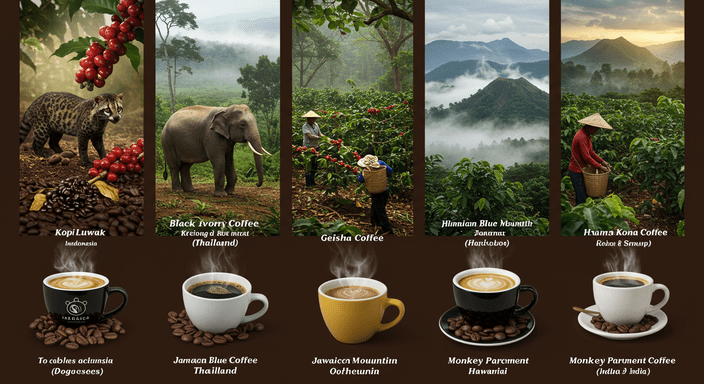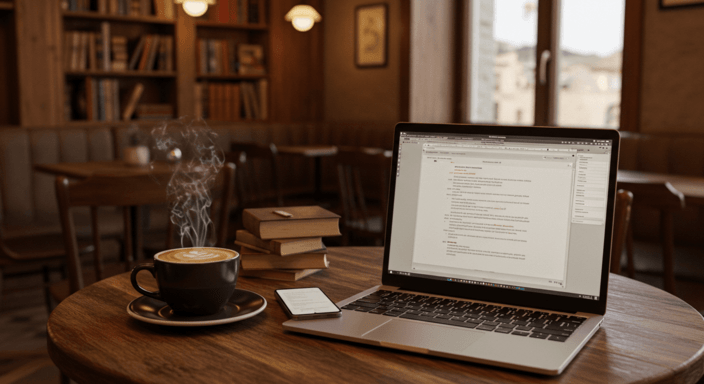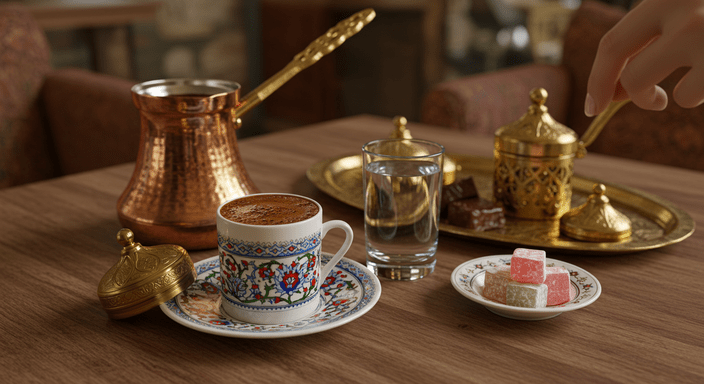The Most Exotic Coffees in the World: Surprising Flavors and Curious Facts
Coffee is more than just a drink—it’s an adventure. Across the globe, coffee enthusiasts seek out rare, unique, and exotic beans that offer flavors unlike anything found in a regular cup of joe. Some of these coffees come from unusual processing methods, while others grow in remote, high-altitude regions that produce distinct taste profiles.
From animal-processed beans to volcanic-grown varieties, here are some of the most exotic and fascinatinThe World’s Most Exotic Coffees: A Flavor Adventure in Every Sip
Coffee is more than just a morning beverage — it’s a global experience. Around the world, coffee lovers seek out rare, unique, and exotic beans that offer flavors far beyond your standard cup of joe. From beans digested by animals to those grown on volcanic slopes, each variety offers a one-of-a-kind taste and an incredible story.
Here’s a curated journey through some of the most exotic and fascinating coffees from around the world.
1. Kopi Luwak (Civet Coffee) – Indonesia
The World’s Most Controversial Coffee
Kopi Luwak is perhaps the most famous and controversial exotic coffee. It’s made from coffee cherries that have been eaten and digested by civets — small, cat-like mammals native to Southeast Asia. During digestion, enzymes break down proteins in the beans, resulting in a smoother, less acidic coffee.
Flavor Profile:
- Smooth, earthy, slightly chocolatey
- Low acidity and reduced bitterness
Origin: Indonesia, Philippines, Vietnam
Price: $300–$1,000 per pound
Ethical Note: Many farms cage civets, which raises significant animal welfare concerns. Always look for wild-sourced Kopi Luwak to ensure ethical and sustainable production.
Learn More: Wikipedia – Kopi Luwak
Watch: Why is Kopi Luwak So Expensive? (YouTube)
2. Black Ivory Coffee – Thailand
Elephant-Digested Coffee
Similar in concept to Kopi Luwak, Black Ivory Coffee is made using beans that are eaten and digested by elephants. The fermentation process in the elephant’s digestive system transforms the flavor, removing bitterness and adding richness.
Flavor Profile:
- Rich, chocolatey, with nutty notes
- Extremely smooth with hints of spice
Origin: Thailand
Price: $500–$2,000 per pound
Fact: Black Ivory Coffee is one of the rarest coffees on the planet, with extremely limited production each year.
Official Site: Black Ivory Coffee
3. Geisha Coffee – Panama
The Champagne of Coffee
Originally from Ethiopia but popularized in Panama, Geisha (or Gesha) coffee is a highly prized variety known for its floral aroma and tea-like qualities. It’s frequently a winner in international coffee competitions.
Flavor Profile:
- Floral, jasmine, and citrus notes
- Delicate body with a tea-like finish
Origin: Panama (also grown in Ethiopia and Colombia)
Price: $100–$1,500 per pound
In 2019, a pound of Panamanian Geisha sold for $1,029 at auction — one of the highest prices ever paid for coffee.
More Info: Why Geisha Coffee Is So Expensive
4. St. Helena Coffee – South Atlantic Ocean
Napoleon’s Favorite Coffee
Grown on the remote island of St. Helena, this coffee benefits from the island’s volcanic soil and oceanic microclimate. The result is a balanced, refined cup with complex notes.
Flavor Profile:
- Wine-like acidity with caramel and citrus hints
- Smooth and elegant
Origin: St. Helena (British Overseas Territory)
Price: $100–$200 per pound
Fun Fact: Napoleon Bonaparte drank St. Helena Coffee during his exile on the island in 1815.
Explore More: St. Helena Coffee
5. Jamaican Blue Mountain Coffee – Jamaica
The Smoothest Coffee in the World
This coffee grows at high altitudes in Jamaica’s Blue Mountains, where cooler temperatures and misty conditions slow the beans’ maturation. The result is a coffee that’s extremely smooth and mild.
Flavor Profile:
- Mild and creamy with a smooth texture
- Balanced sweetness and very low bitterness
Origin: Jamaica
Price: $50–$100 per pound
Only 0.1% of the world’s coffee comes from the Blue Mountains, making this coffee one of the most exclusive on the market.
Learn More: Jamaican Coffee Board
6. Yirgacheffe Coffee – Ethiopia
The Birthplace of Coffee
Yirgacheffe, a region in Ethiopia, produces some of the most aromatic and fruit-forward coffees in the world. It’s often processed using traditional natural methods, where beans are dried inside the cherry for enhanced sweetness.
Flavor Profile:
- Fruity, floral, and tea-like
- Bright acidity with natural sweetness
Origin: Ethiopia
Price: $20–$50 per pound
Ethiopian farmers have been growing coffee for over 1,000 years, and coffee ceremonies remain an important cultural tradition.
Further Reading: The Ultimate Guide to Ethiopian Coffee
7. Kona Coffee – Hawaii, USA
Volcanic-Grown Perfection
Grown on the slopes of Hawaii’s Mauna Loa volcano, Kona Coffee thrives in rich volcanic soil and a tropical climate. It’s known for its smooth texture and subtle sweetness.
Flavor Profile:
- Nutty and chocolatey with a clean finish
- Mild acidity and full body
Origin: Hawaii, USA
Price: $30–$100 per pound
Tip: Look for “100% Kona Coffee” on the label, as many cheaper blends contain only 10% real Kona beans.
More Info: Kona Coffee Council
8. Monkey Parchment Coffee – India
Monkey-Chewed Beans
In southern India, Rhesus monkeys pick and chew on ripe coffee cherries before spitting out the beans. Farmers collect these partially processed beans, which are then washed and roasted. The monkeys’ saliva naturally ferments the beans, producing a sweet and complex flavor.
Flavor Profile:
- Sweet, chocolatey, slightly fermented
- Smooth texture with low acidity
Origin: India
Price: $100–$300 per pound
Unlike Kopi Luwak or Black Ivory, Monkey Parchment Coffee does not involve digestion — just a quick chew.
Learn More: Coffee Review – Monkey Coffee
Conclusion: A World of Flavor Awaits
Exotic coffees aren’t just about taste — they’re about discovery. From wild animals to volcanic soil, from tropical rainforests to high-altitude farms, each exotic coffee has its own tale and terroir. Whether you’re a seasoned connoisseur or just curious, tasting one of these rare coffees could be a once-in-a-lifetime experience.
Top Picks for Your First Exotic Coffee:
- For elegance and sophistication: Try Geisha Coffee
- For unmatched smoothness: Black Ivory is your best bet
- For tradition and balance: Go with Jamaican Blue Mountain
Let your next coffee be more than a routine — let it be an adventure.
FAQ – Exotic Coffees
1. Are exotic coffees worth the price?
Yes, for many coffee enthusiasts, exotic coffees offer a once-in-a-lifetime tasting experience. Their unique flavors, rare origins, and intricate processing methods justify their premium price tags — especially for those who appreciate high-end gourmet experiences.
2. Where can I buy authentic exotic coffee?
You can find authentic exotic coffees through:
- Specialty roasters and gourmet coffee shops
- Online retailers like Volcanica Coffee, Bean Box, or Black Ivory Coffee
- Directly from farms or cooperatives, which ensures ethical sourcing
3. What makes animal-processed coffee so unique?
Coffees like Kopi Luwak or Black Ivory are digested by animals (civets and elephants), whose enzymes change the chemical composition of the beans. This results in smoother, less acidic flavors. The rarity and natural fermentation contribute to both their uniqueness and high cost.
4. Is it ethical to drink Kopi Luwak or Black Ivory Coffee?
It depends. Ethical concerns have been raised about the treatment of civets and elephants in captivity. Always look for certified wild-sourced or ethically produced versions, where the animals roam freely and are not forced to consume the cherries.
5. What’s the difference between Geisha coffee and regular coffee?
Geisha (or Gesha) coffee has a very distinct flavor profile — floral, tea-like, and citrusy. It’s far more delicate than traditional Arabica varieties and often grown in very small batches, which adds to its exclusivity and price.
6. Why is Jamaican Blue Mountain Coffee so smooth?
Its smoothness comes from the cool, high-altitude climate of Jamaica’s Blue Mountains, which slows bean maturation. This results in beans with balanced sweetness, low bitterness, and a silky texture.
7. Can I brew these exotic coffees at home?
Absolutely. However, to get the best out of them:
- Use freshly ground beans
- Brew using methods that preserve flavor, like pour-over or French press
- Use filtered water and the right temperature (around 92–96°C)
8. How should exotic coffee beans be stored?
Keep them in an airtight container, away from heat, light, and moisture. Avoid refrigerating or freezing, as temperature fluctuations can affect the flavor.
9. Is Monkey Coffee safe to drink?
Yes. Despite the unusual process, Monkey Coffee is thoroughly cleaned, washed, and roasted before it reaches consumers. It goes through standard quality controls, just like any other specialty coffee.
10. Which exotic coffee should I try first?
It depends on your taste:
- Prefer smooth and mellow? Try Jamaican Blue Mountain or Black Ivory
- Love complex and floral notes? Go for Geisha
- Want something adventurous? Sample Kopi Luwak or Monkey Parchment Coffee














Post Comment